Regionalization puts epic campus plans on hold – but CBS solves “urgent” space problem with 6,000 new square meters

The south-east entrance expands into a four-story building. The gray building on the right is the old building that belongs to Frederiksberg Station. (Illustration: C.F. Møller)
Political decisions, pandemics, digitalization, and climate changes are impacting CBS’ current and future campus development plans, explains University Director, Kirsten Winther Jørgensen. “At the moment, it is really hard to determine what CBS’ future needs will be,” she says.
A poster on top of the bookcase in Kirsten Winther Jørgensen’s office at The Wedge illustrates “the masterplan” of what Solbjerg Campus could look like with about 31,000 extra square meters divided among four huge buildings.
“These illustrations always show scenes in bright sunlight. I’ve often wondered why they don’t make them in rain and sleet as well,” says the University Director of CBS, indicating the poster.
Kirsten Winther Jørgensen has agreed to an interview about CBS’ campus development plans, as the past year has brought exceptional opportunities and new realities topped with political unpredictability that all impact current and future campus development plans.
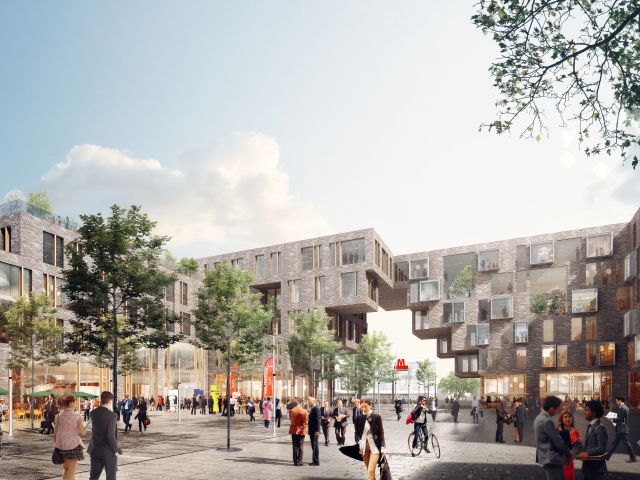
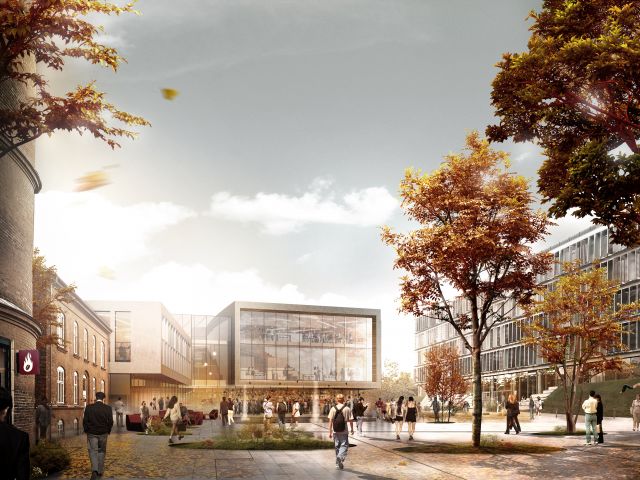
“At the moment, it is really hard to say what CBS will need in the way of additional space in the future. What we do know is that ahead of us lies an important and complex process of identifying our concrete needs when the regionalization plans have been implemented at CBS,” she says.
The regionalization plans Kirsten Winther Jørgensen is referring to involve reducing and moving study places from the universities in the four biggest cities. This includes CBS.
“When the government presented and later agreed on the regionalization plans, the Board of Directors at CBS decided to halt its plans to expand campus with new buildings between Fasanvej and The Wedge,” she says, pointing out the buildings in orange on the poster drawn up by C.F. Møller Architects back in 2014. (See illustration)
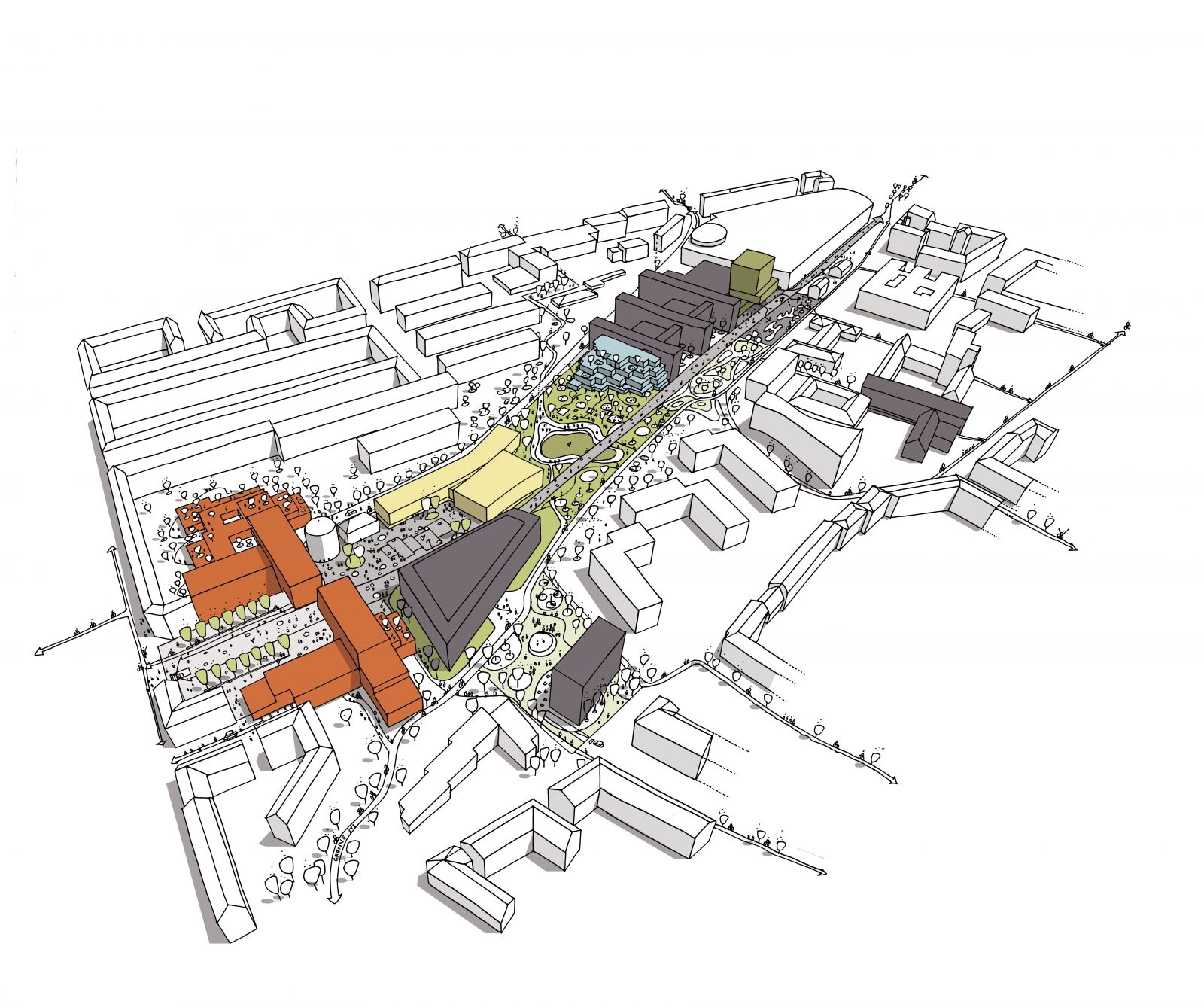
But although the major plans have now been shelved, CBS is still expanding.
This spring, CBS had the chance of renting a new building: Finsensvej 6, while CBS, at the moment, is negotiating about renting Peter Bangs Vej 36.
Renting the two properties will expand CBS by 6,010 square meters and result in six to eight new classrooms with accompanying study facilities and common areas and around 100 office spaces. On top of that, CBS will also renovate its existing campus.
Classrooms, study spaces and offices are all in high demand at CBS, regionalization plans or not, explains Kirsten Winther Jørgensen.
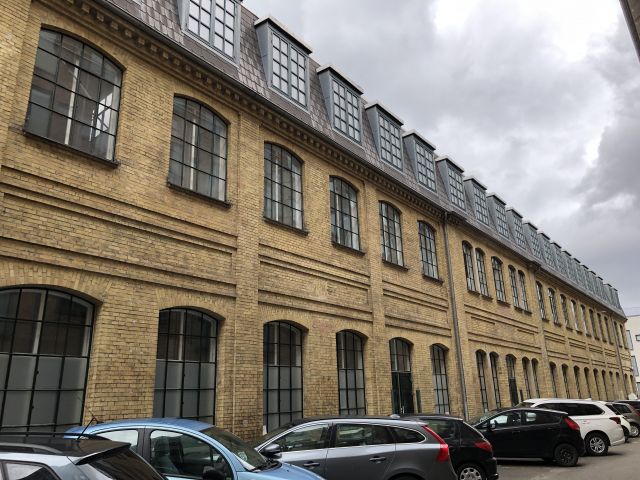
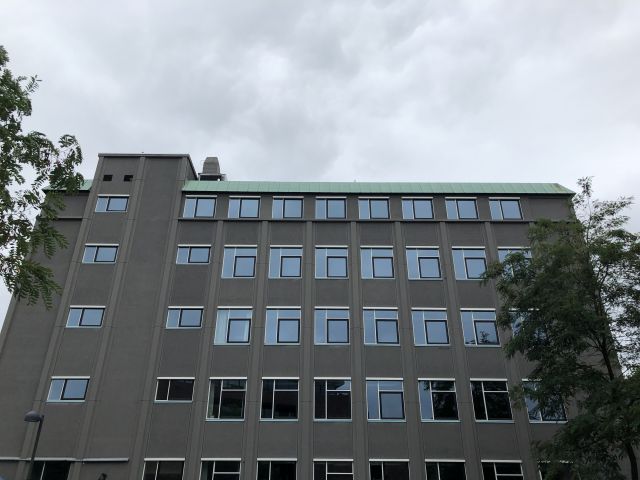
“We urgently need more space, right here and right now. We need these two tenancies, and they are just right for teaching and office space. The regionalization plans will not change those needs at the short term, as the number of employees will continue to grow, and we have big ambitions for the teaching we want to deliver in the future,” she says.
New times – new needs
When asked what campus development means in the context of CBS and why it is required, Kirsten Winther Jørgensen lists several factors, but starts by disclosing:
“The cornerstone of campus development is that we want to make the best use of the square meters we have in a sustainable and resource efficient way,” she says.
Another important factor that impacts on campus development and will do so even more in the future, is digitalization.
“We are living in exciting times. The past 1.5 years have taught us so much about digitalization and working from a distance. What works and what doesn’t. And this will be valuable knowledge as we return to a new normal,” she says.
In her view, online teaching and remote work have boosted discussions on how to make the best use of the square meters CBS already has at its disposal. For example, teaching can be a mix of online and on-campus activities, but that requires appropriate classrooms.
“We will certainly need new types of classrooms that can support future teaching formats. Smaller and more flexible classrooms to support interaction-based teaching and group rooms. At the same time, we will face new demands from employees, including for offices that can support hybrid meetings far better than today,” she says and continues:
“So whether or not we need to construct new buildings in the future, we will definitely need to continue developing campus to support student and staff needs.”
She gives an example of teachers’ needs at CBS:
“Right now, we have a situation where teachers risk being assigned classrooms that do not accommodate the learning objectives optimally, simply because we have so few classrooms and therefore limited flexibility.”
Uniting units
Over the years, many CBS employees have been affected by departmental reorganizations and unit mergers that have resulted in offices being relocated to new floors or sites. And this is all part of campus development, explains Kirsten Winther Jørgensen.
“For our employees, it is important to be closely connected to the unit where they work, and this is one aim when developing our campus. Because being close to relevant colleagues creates communities,” she says.
For example, Teaching and Learning will be moving to Finsensvej 6 with CBS International Office and employees working in the EDU unit. This reshuffle leaves space in Rosenhaven for the STADS unit and employees working on the Kopernikus IT project to move in.
However, Kirsten Winther Jørgensen acknowledges that having to physically move does not improve workflow efficiency.
“Teaching and Learning has been moved a number of times, and that’s not optimal. Of course not. Having to move is annoying, as workflow and habits are interrupted. But Campus Services are doing their utmost to facilitate and make the transitions as smooth as possible,” she says.
Therefore, as she explains, when units or departments have to move, managers are closely involved in the organization processes.
“Campus Services form local task forces through which the employees and managers can share their input about their needs, how the offices or common spaces should be arranged and decorated and other details. These factors are important for working life, which is why we don’t choose a ‘one size fits all’ solution. We involve people in the process where it makes sense,” she says.
Due to the lack of office space and classrooms, Kirsten Winther Jørgensen knows that problems will keep cropping up. Therefore, she wants to seize every opportunity to develop campus to suit the needs of both students and employees.
“Our campus portfolio gives us very low flexibility in terms of moving people. For example, a while ago, when CBS Legal was first formed, employees were scattered on different addresses. We were able to solve this problem in connection with a larger relocation project some years ago. In that sense, we are continually attempting solving these problems whenever we get the chance,” she says.
Digital natives and avatars
We look at the poster illustrating the 2014 masterplan. The idea was to build a big construction between Fasanvej and The Wedge to house student facilities, classrooms, offices, and spaces for knowledge sharing and networking.
Instead, a football pitch, a wild garden and a jungle gym have been established for students, staff and locals to use.
The masterplan – whether or not it is realized in the future – reminds Kirsten Winther Jørgensen that it is good to have big dreams and look far ahead into the future, even if you do not know whether political decisions, pandemics or climate changes will prevent progress.
“This masterplan inspires us to think big about our aims for our campus, and it is fantastic and inspiring to have the visions of the master plan to draw on in our work with developing campus,” she says.
So much can happen in 10 years. Maybe then we will hold meetings and teaching with digital avatars?
Kirsten Winther Jørgensen
For example, the masterplan comes with several park-like areas that are also suitable for collecting excess rainwater, as a measure for preventing local flooding, which many experts expect we will encounter more in the future.
“Sustainability is a core element of campus development. It’s not sustainable to build new buildings, and better if we can use existing space. But it is, of course, more complicated than that. The carbon footprint varies from old buildings to new buildings, and it is crucial to look at the total level of climate footprint when assessing campus development plans,” she says.
She is curious to see how campus development will change over time – especially over the next 10 years, as a special group of students will be on campus.
“The pandemic has boosted our online skills, but very soon we will see a generation of digital natives coming to CBS. They have been born with digital devices in their hands. And what will that mean for the way we teach and use our campus? That will be very interesting,” she says and continues:
“So much can happen in 10 years. Maybe then we will hold meetings and teaching with digital avatars? We don’t know, and that’s exactly why we need our campus to be as flexible as possible so that it can support the needs and demands of both students and employees in the future.”



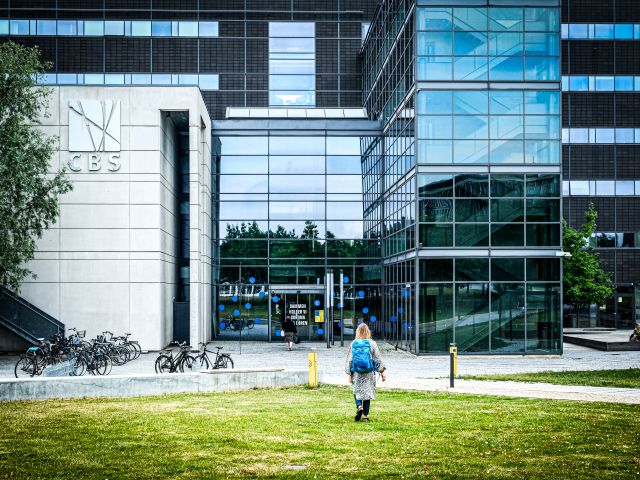

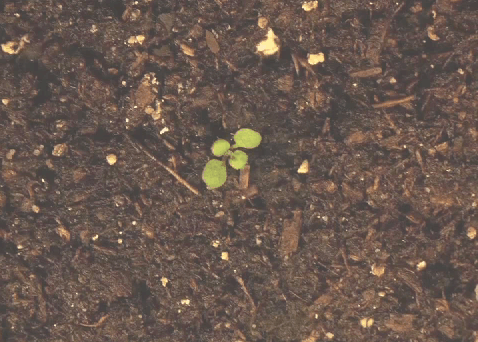
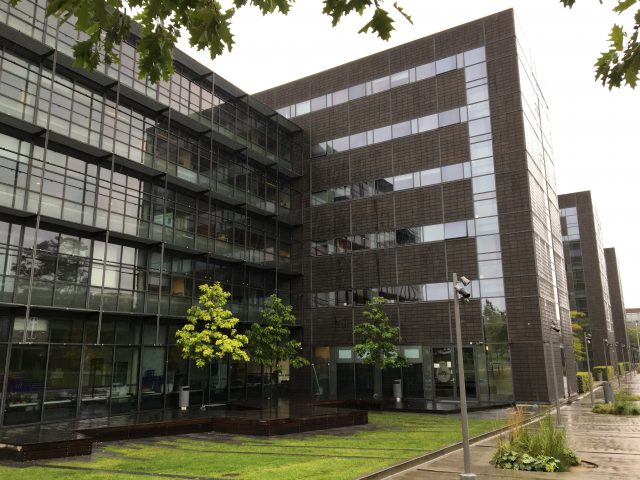
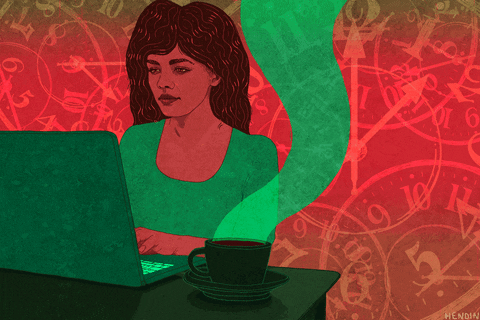
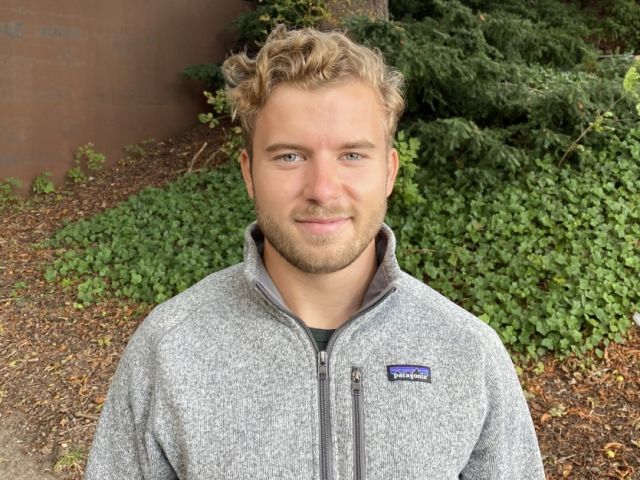





























































































































Comments